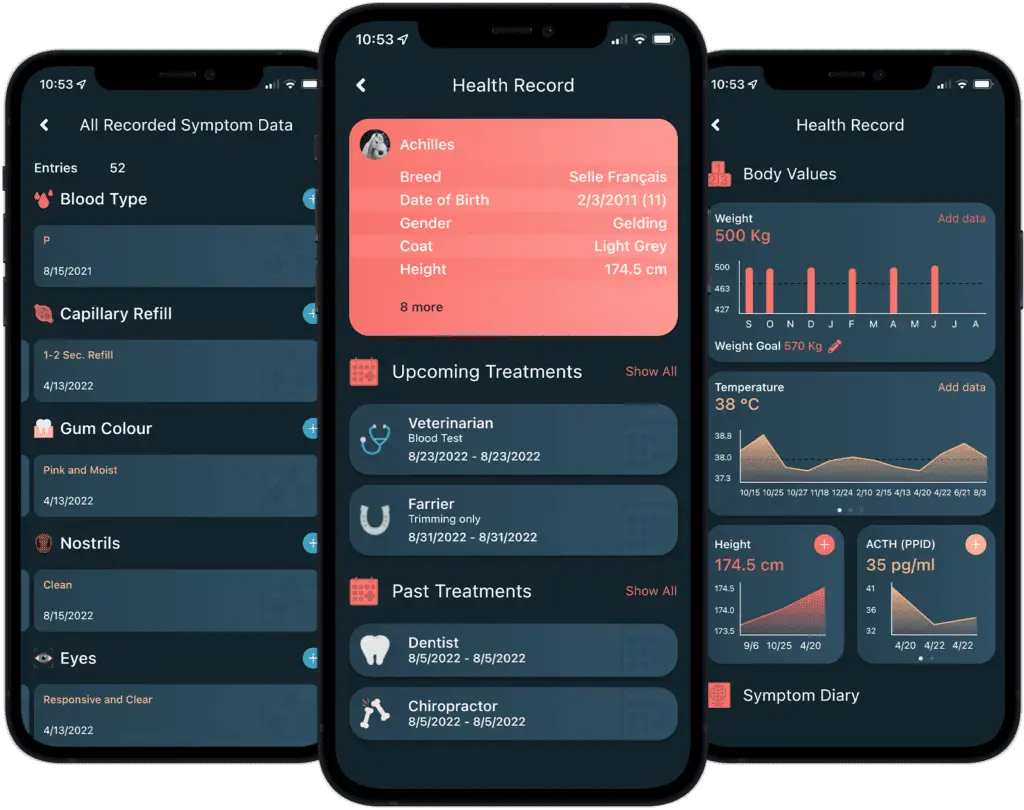
Equine Motor Neurone Disease
Seek veterinary advice if you suspect this disease.
Equine motor neurone disease is a progressive neurological disorder in horses causing muscle weakness, weight loss, and trembling.

This disease is life-threatening and should be treated by a veterinarian swiftly.
Cryptosporidiosis in horses is a parasitic infection caused by various species of the protozoan parasite Cryptosporidium, including Cryptosporidium parvum, Cryptosporidium hominis, Cryptosporidium muris, Cryptosporidium horse genotype, Cryptosporidium tyzzeri, and Cryptosporidium andersoni. It primarily affects the intestines, leading to symptoms such as watery diarrhea, weight loss, and dehydration. Managing cryptosporidiosis in horses can be challenging due to the resistant nature of the parasite and the potential for zoonotic transmission to humans.
Cryptosporidiosis in horses typically does not lead to fatal outcomes on its own, but severe cases with complications such as dehydration and secondary infections can potentially be life-threatening, especially in young foals or immunocompromised individuals.
Treatment for cryptosporidiosis in horses typically focuses on supportive care to manage symptoms and promote recovery. This includes providing fluids and electrolytes to prevent dehydration, maintaining nutrition with easily digestible feeds, and possibly administering medications such as anti-diarrheals or antimicrobials under veterinary guidance. However, specific antiparasitic treatments are limited due to the resistant nature of Cryptosporidium parasites, making prevention and supportive care critical aspects of management.
Preventing cryptosporidiosis in horses involves implementing strict biosecurity measures to minimize exposure to contaminated environments and animals. This includes maintaining clean and hygienic stabling conditions, providing clean water sources, and practicing good hygiene practices such as regular disinfection of equipment and avoiding overcrowding.

Digital health management offers numerous benefits in modern equine healthcare.
With the Happie Horse App, you can track symptom patterns and body values, such as Temperature, Pulse and Respiration. Allowing you to notice abnormal changes in body and behaviour early on, leading to more successful treatments.
The Happie symptom checker allows you to add all of your horse’s abnormal symptoms in order to present potential causes and diseases.

Seek veterinary advice if you suspect this disease.
Equine motor neurone disease is a progressive neurological disorder in horses causing muscle weakness, weight loss, and trembling.

Equine Protozoal Myeloencephalitis This disease is life-threatening and should be treated by a veterinarian swiftly. Equine Protozoal Myeloencephalitis (EPM) is

Equine Degenerative Myeloencephalopathy Seek veterinary advice if you suspect this disease. Equine Degenerative Myeloencephalopathy (EDM) is a hereditary neurological disorder